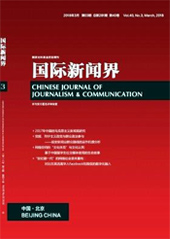News
The academic conference:news and Social Development Forum (Beijing, 2021)
Author: Time:2021-01-15The academic conference:news and Social Development Forum (Beijing, 2021) was held to discuss the inheritance and innovation of Journalism and communication discipline under the background of new liberal arts construction.
The Research Center for Journalism and Social Development of Renmin University of China and Renmin University of China, School of Journalism, Journalism and Communication Committee of China Association for Higher Education and School of Journalism and Communication of Southwest University of Political Science and law, jointly held "Journalism and Social Development Forum (2021)" on January 9, 2021. the theme of which was "the integrity and innovation of journalism and communication discipline under the background of the construction of new liberal arts"。
Deans of 21 universities gathered online and offline to discuss issues such as journalism and communication, theoretical research and discipline construction from multi-dimensional perspectives with interdisciplinary and broad vision as academic guidance, aiming to promote the discussion and communication of journalism and communication under the background of new liberal arts, and to build a new platform for the interaction and co-promotion of journalism and communication theory and practice.
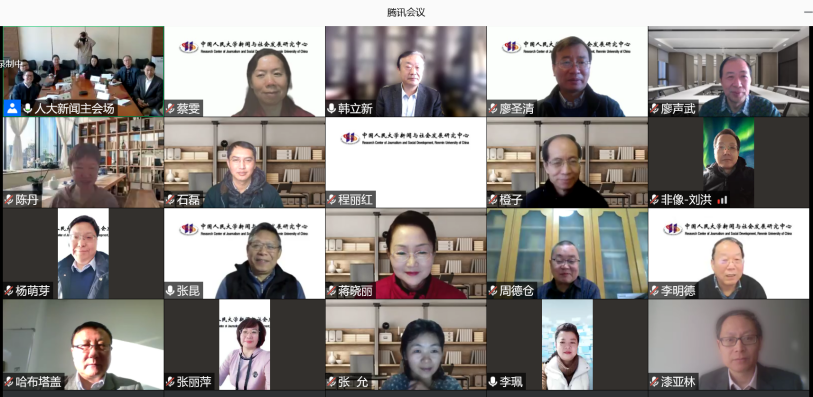
Online "group photo"
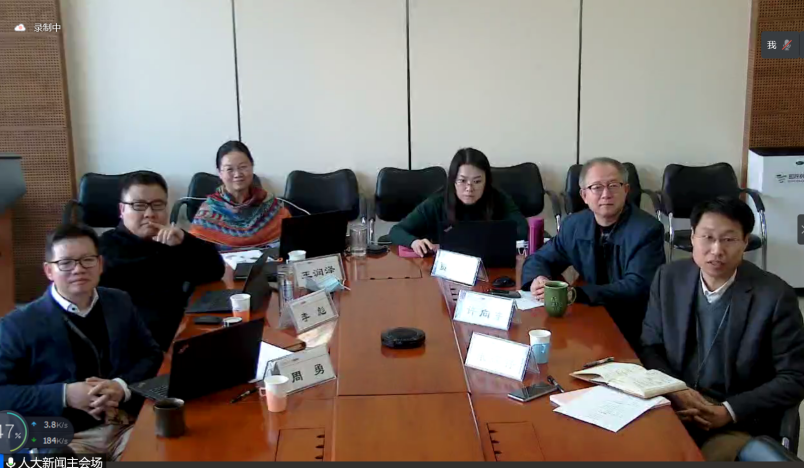
Offline "group photo"
Professor Wen Cai, a director at Journalism and social development research center of Renmin University of China, and Professor Pei Li, dean,School of Journalism and communication,Southwest University of political science and law, and Professor Yong Zhou, executive dean of School of journalism of Renmin University of China, delivered speeches successively.
Professor Wen Cai, on behalf of the Journalism and Social Development Research Center of Renmin University of China, welcomed all the leaders and experts to the forum and thanked them for their participation in the cold winter, especially when the epidemic has once again disrupted the pace of life.
She said that, On November 3 last year, relevant colleges and universities and experts across the country issued the Declaration on the construction of new liberal arts in Shandong. The declaration also expressed the consensus on the new era, new mission, and the need to accelerate the innovation and development of liberal arts. It also proposed that we should adhere to the road of the development of liberal arts education with Chinese characteristics, and complete the task of building a world-class and Chinese characteristic liberal arts talent training system. As an important branch of liberal arts education, journalism and communication is also a main force in the construction of journalism.
Just like the key word of the forum "keep right and innovate", the discipline construction can not abandon the tradition, break the foundation and be complacent and lag behind the times; it should not only improve the core knowledge system of the discipline, but also achieve the goal of cultivating new talents in the process of cross integration with other disciplines.
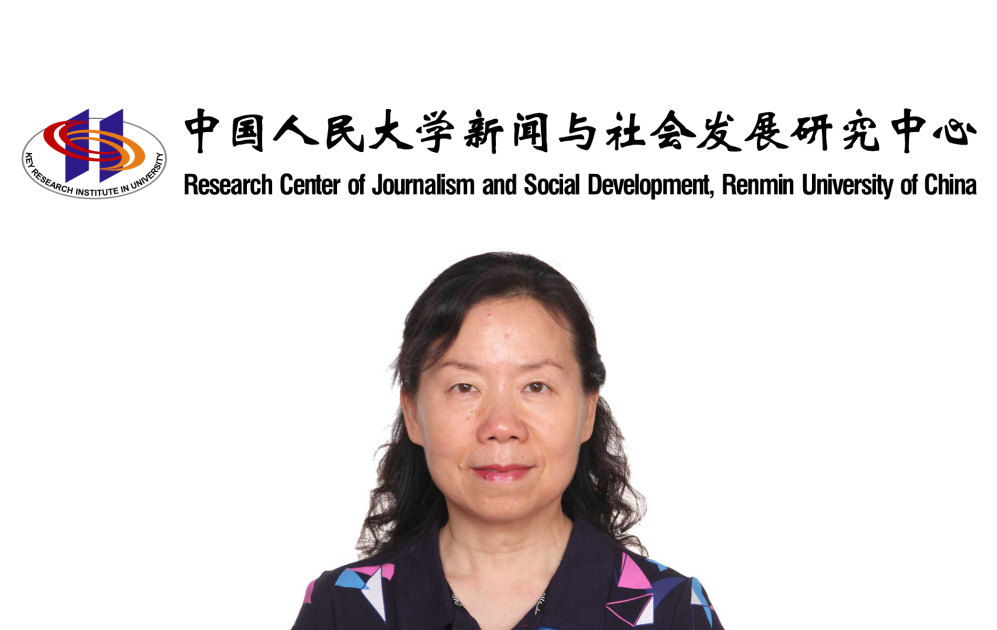
Professor Wen Cai
Professor Pei Li believes that,in this context ,the discipline of Journalism and communication should be upright and innovative, which is both the focus and difficulty. At present, Southwest University of political science and law is also making arduous exploration. On the basis of the combination of Journalism and communication, human rights and law, eight disciplines, including journalism and communication, politics, Marxism and economics, are promoted to jointly build the discipline cluster of Journalism and communication, so as to adapt to the trend of the excellent cluster development and realize students' development of theoretical knowledge,professional skills, humanistic cultivation, scientific and technological ability, etc.

Professor Pei Li
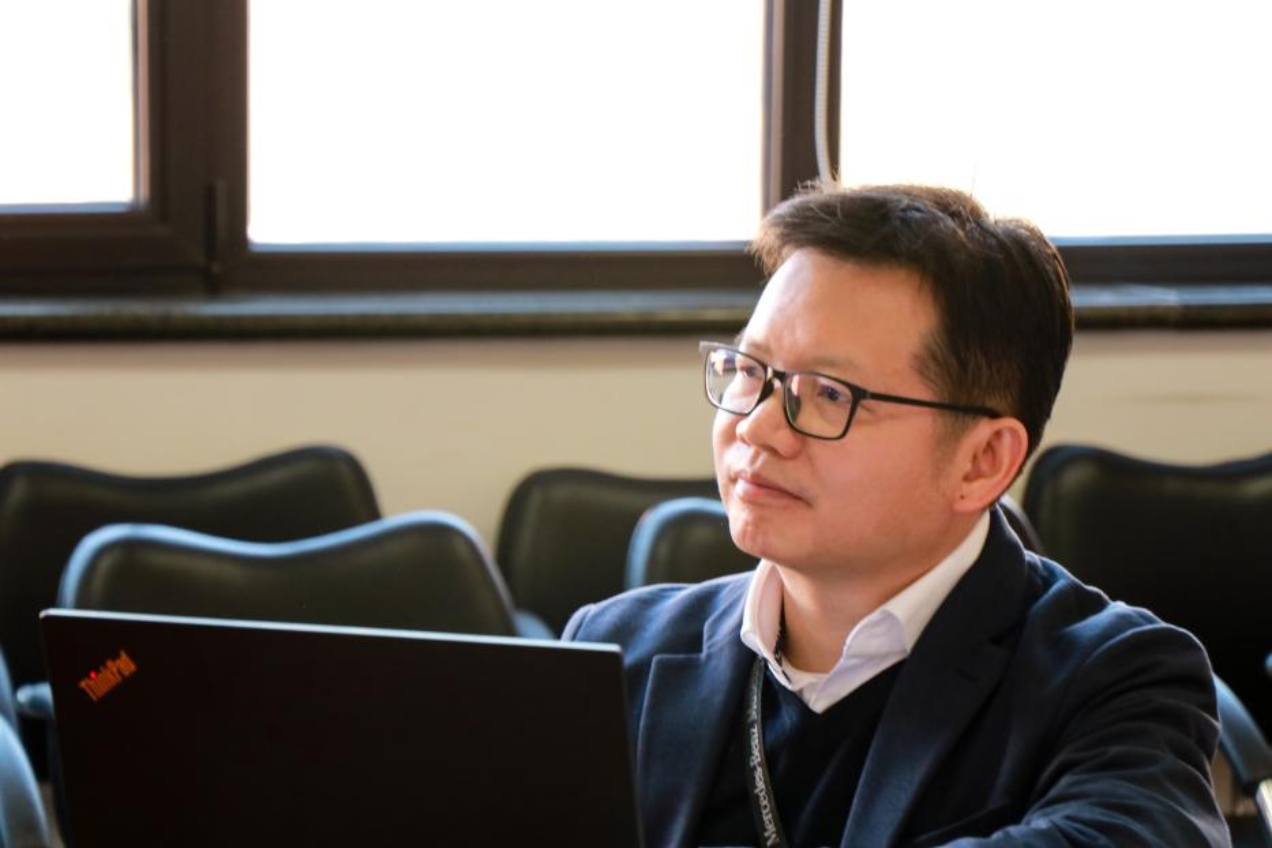
Professor Yong Zhou, extended a warm welcome to all the teachers and students attending the conference,and also expressed his heartfelt thanks to his colleagues and other schools which have been caring for, supporting and helping us for a long time. He mentioned that in the past year, he had done a lot of things together with other colleges, experienced the epidemic test, held a four-school joint workshop with the University of Chinese Academy of Social Sciences, Hebei University, and Beijing Institute of Printing, and also held the "Journey to Search for the Roots of the Centennial Journalism of the Communist Party of China" together with many deans attending the meeting. Based on the reform of talent cultivation,questions of how to planning the reform of the future curriculum system, especially how to adapt to the urgent needs of the country and how to upgrade and transform the talent training are important.
Professor Yong Zhou
The opening ceremony was presided over by Professor Huif eng Zhang, Party Secretary of 
the School of Journalism, Renmin University of China.
Professor Hui feng Zhang
the four keynote speeches were carried out successively, creating an academic dialogue space for the participants to discuss, build and share. Deans of many journalism schools had full academic exchanges,
First Speech
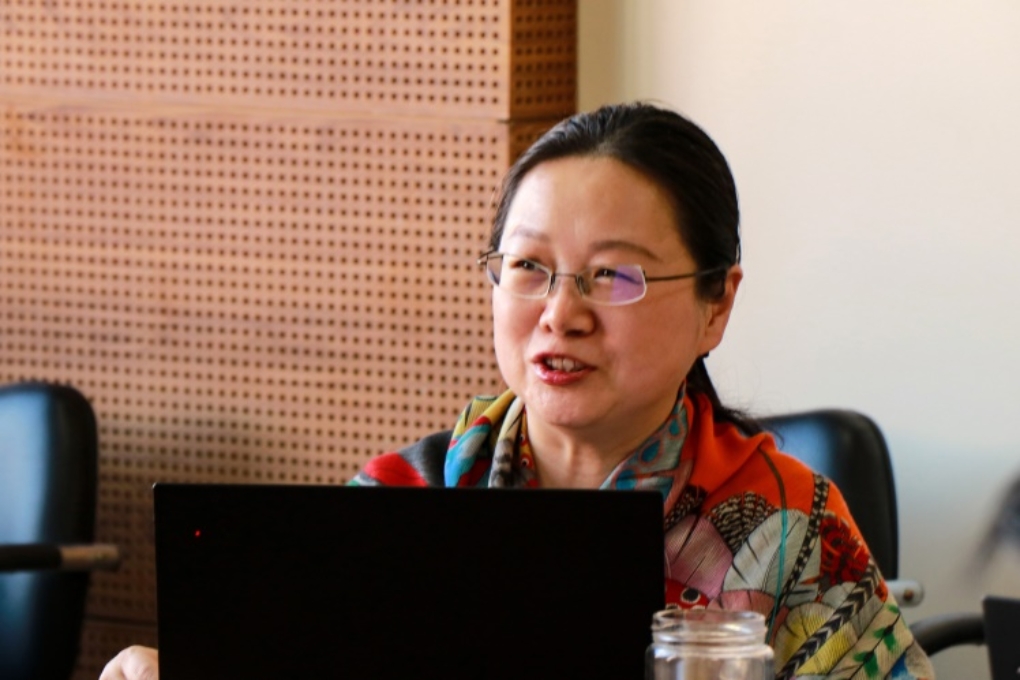
First speech hosted by professor Run ze Wang,school of journalism, Renmin university of China, and the speakers are: Sichuan university, professor xiao-li Jiang, professor Kun Zhang as the dean of the school of journalism &communication, Minzu University of China, professor Cheng Feng, dean of school of journalism &communication in Lanzhou university, professor sheng wu Liao of Hubei university, and professor Ming de Li, Dean of school of journalism, xi 'an Jiaotong university.
professor Run ze Wang
First speech hosted by professor Run ze Wang,school of journalism, Renmin university of China, and the speakers are: Sichuan university, professor xiao-li jiang, professor Kun Zhang as the dean of the school of journalism &communication, Minzu University of China, professor Cheng Feng, dean of school of journalism &communication in Lanzhou university, professor sheng wu liao of Hubei university, and professor ming de Li, Dean of school of journalism, xi 'an jiaotong university.
Professor xiao-li Jiang:
Some teachers of Sichuan university have been trying to diss discuss the integration of the two academic fields of Journalism and communication and semiotics under the circumstances of revolutionary changes in the pattern of news communication, putting forward a new interpretation of the classic categories, concepts and problems in this subject from another perspective.
For example, it is more urgent and necessary to rethink "news authenticity", a core issue in journalism . News authenticity is not an ontological problem, and the discussion of authenticity in Semiotics also does not pay attention to whether it conforms to individual facts.it is not the focus of semiotics. What is really important is to reinterpret journalism and communication with the theory of semiotics. Interdisciplinary research is the only way to innovation and development.
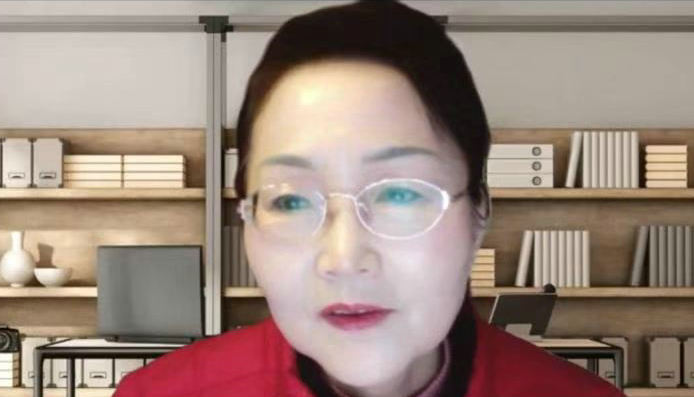
Professor xiao-li Jiang
Professor kun zhang:
journalism education should return to education itself. Specifically, there are four enlightenments: first, the three major including personnel training, innovative knowledge, and social services should be balanced; second, Personnel training also needs all-round development. teachers should pay attention to both ethics and academic level; third, the structure should be reasonable, teachers' age structure, professional background should be reasonable. The discipline development rhythm and policy should also be reasonable; fourth, no matter in personnel training, knowledge innovation, social service, cultural construction, we should adhere to the quality first.
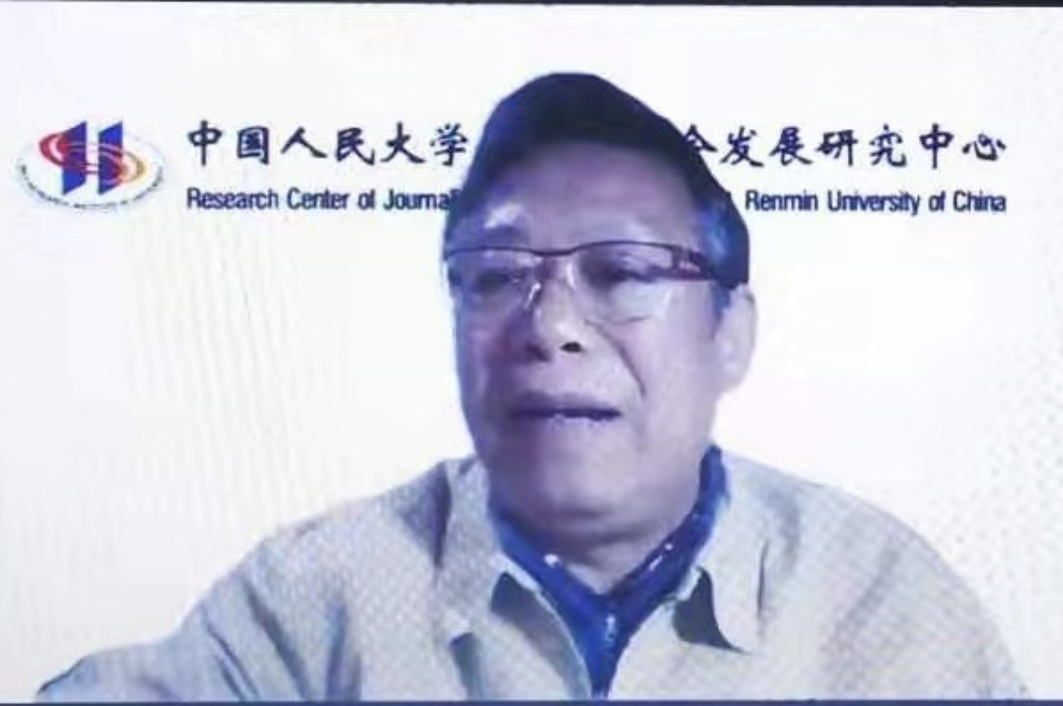
Professor kun zhang
Professor Cheng Feng:
Here are three aspects about innovation consciousness:First, firmly establish the consciousness of new liberal arts and the thinking of new engineering, vigorously promote the innovation and interdisciplinary development. Second, adhere to the socialist concept of news communication with Chinese characteristics, abide by the principles of true, accurate, objective, and understand the development laws of industries. Third, we should carry out disciplinary innovation, change, and strive to form a new education
theory system, disciplinary system, teaching system.
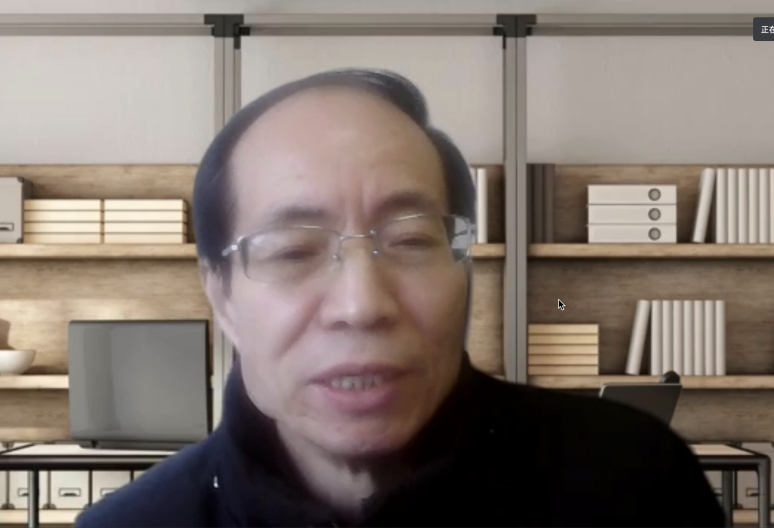
Professor Cheng Feng
Professor sheng wu liao:
New liberal arts is the promotion of the traditional liberal arts, trying to break the professional barriers and disciplinary barriers. it provides students with literacy training more in line with the needs of modern society on the basis of a broad academic vision and profound academic accumulation. Journalism and communication education can be innovated from three aspects: the integration of science and technology, the integration of social science and the interdisciplinary integration of information science. In 2018, the School of Journalism and Communication of Hubei University made some new improvements in its talent training program, opening new courses such as Data Journalism Visualization, Dynamic Web Design, New Media and Life, Digital Economy and News Reporting, introducing new technologies into the courses.
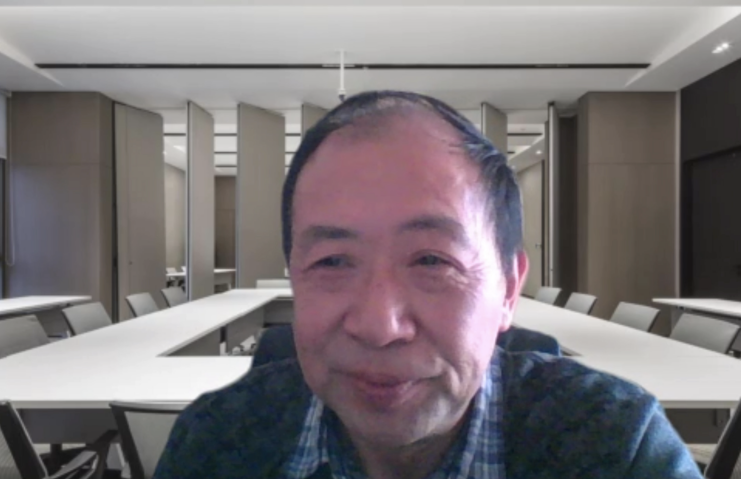
Professor sheng wu liao
Professor ming de Li:
innovation is not only reflected in the expansion and innovation of research objects, research paradigms and methods, but also directly reflected in the reconstruction of disciplinary relations and knowledge system.
Under the circumstances of the new era, traditional journalism theory, communication theory and even basic skills of writing have been eroded.
How to coordinate media technology engineering and professional technical courses, how to make journalism and communication education respond to all changes with constant, how to cultivate talents with soul, feelings, responsibility, ability of value judgment,integration, digital analysis and so on. In short, the position of discipline development cannot be lost.
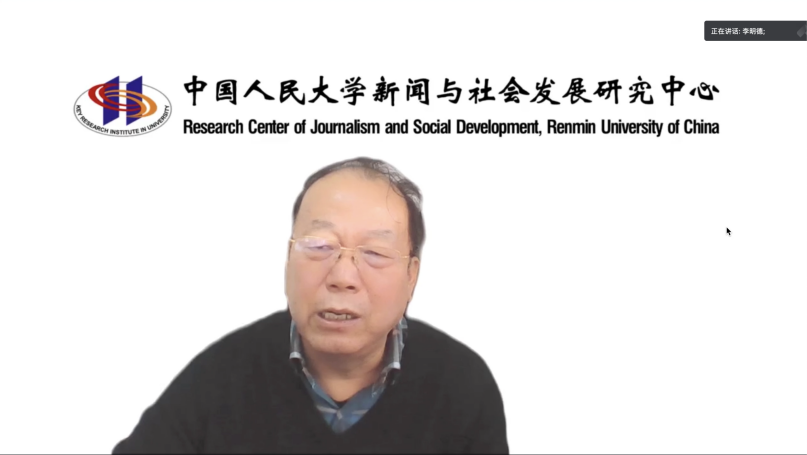
Professor ming de Li
Second Speech
The second speech was hosted by Professor Xiang dong Xu, deputy director of Journalism and social development research center of Renmin University of China. The speakers are: Professor Li xin Han, Dean of School of Journalism and communication, Hebei University; Professor Xin ling Chen, Dean of School of Journalism and communication, Nanchang University; Professor De cang Zhou, Dean of School of Journalism and communication, Xizang Min zu University; Professor Lihong Cheng, Dean of School of Journalism and communication, Liaoning University; Professor Dan Chen, executive dean of School of press publication, Beijing Institute of Graphic Communication; and Professor Lei Shi, Dean of School of humanities, Southwest Jiaotong University.
Professor Li xin Han:
the new liberal is put forward as a countermeasure of the humanities crisis. In China, the goal of the construction of new liberal is to form a Chinese school and create a Chinese culture by means of the integration of modern information technology and liberal arts majors. The path and method of the construction in China include the transformation from the order of subjects to the integration. It is suggested to adopt the means of team, team organization.
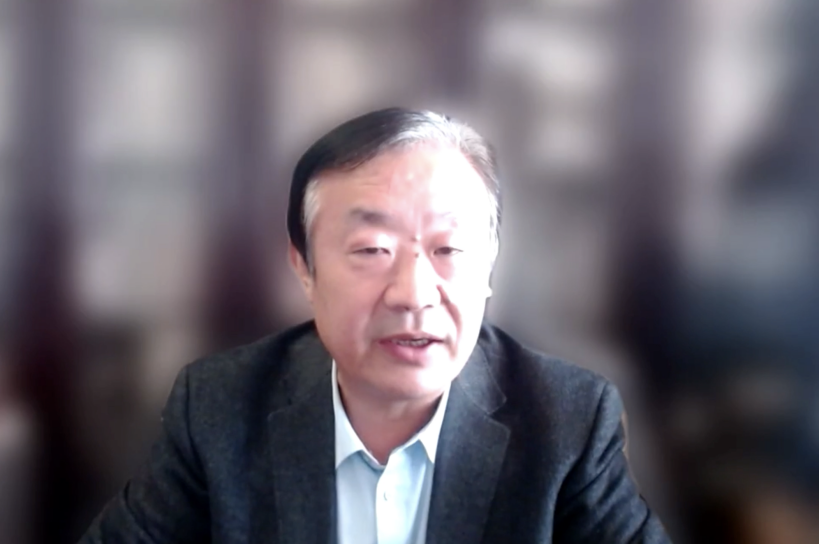
Professor Li xin Han
Professor De cang Zhou:
The localization of Journalism can be considered from four aspects: first, the important practice of Marxist news view; second, summarizing the practice and idea of ancient Chinese communication, such as rules and values in communication; third, folk information communication and practice, containing a lot of communication skills, Chinese communication culture, wisdom. Fourth, Building Journalism and Communication with Chinese Characteristics from the perspective of ethnic minority information communication methods.
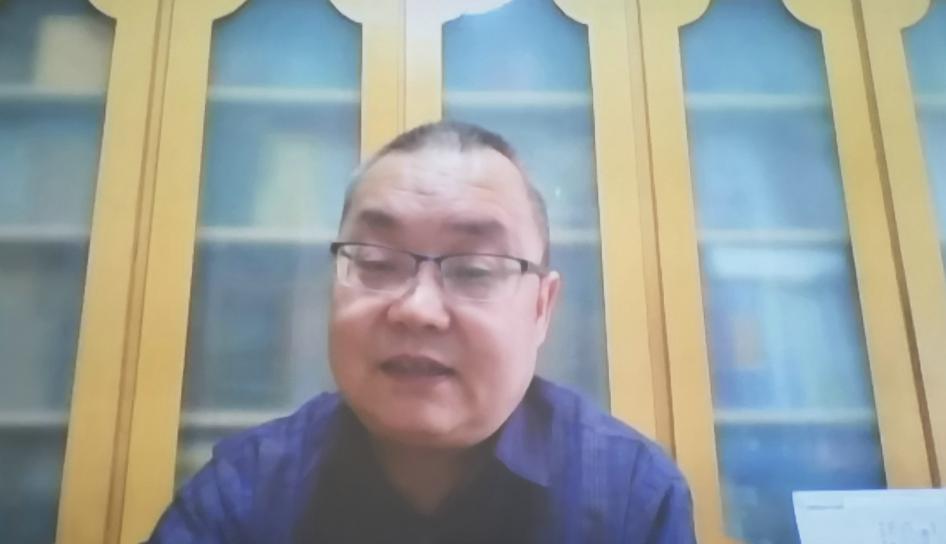
Professor De cang Zhou
Professor Lihong Cheng:
New media technology has formed a new social environment, and the educational environment has also changed. As educators, we need to reconsider the knowledge structure and the higher education training system. In the new environment, we should constantly adjust ourselves to achieve the integration of old knowledge and new one. New media's requirements for educational innovation are constantly increasing. If we blindly keep traditional knowledge, we certainly can't teach new knowledge and solve new puzzles,and consider the function of knowledge in maintaining and promoting society.
But,If we blindly cater to new technologies and only cater to it, what should we do about inheritance? Can it help students build a complete knowledge system? This is a question that needs to be considered. Now there maybe is too much emphasis on new technologies and new ideas, and we have not followed the traditional knowledge and even ignored them, we also can not innovate.
Professor Dan Chen:
The reason why the new liberal arts is called "new" is compared with traditional liberal arts. On the basis of strengthening its roots, it may need to reorganize the original disciplines to form a new humanities and social discipline. Moreover, the construction will provide a strong impetus and broad space for the creation of philosophy, social science theory and academic prosperity. There are three characteristics of new liberal arts, integration, meeting the needs of national construction,and having Chinese characteristics.
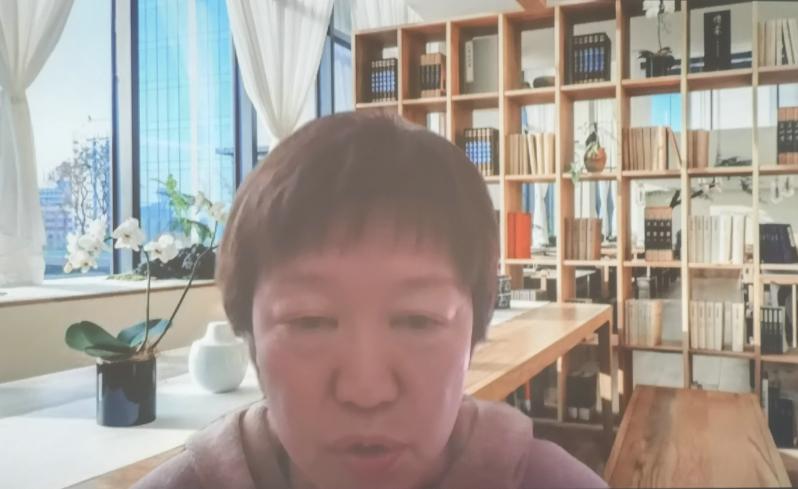
Professor Dan Chen
Professor Lei Shi:
Journalism and communication with Chinese characteristics should be based on China's journalism practice, learning from all the excellent academic achievements of journalism, forming the discipline system and academic discourse of Journalism and communication, and put forward a set of Chinese programs. The methods of cultivating journalism and communication talents mainly include: value leading, adhering to Marxist Journalism; improving international communication ability; subject integration, such as integration of liberal arts and engineering; all media talents training; paying attention to application.
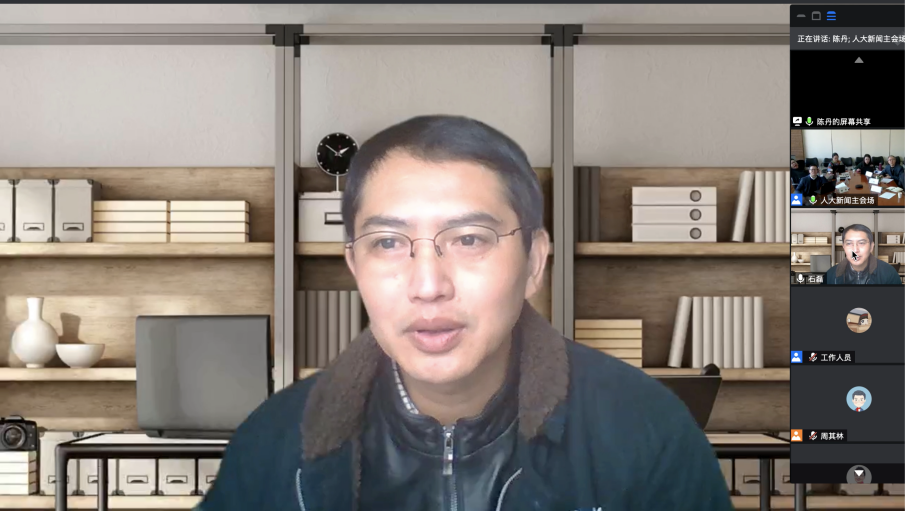
Professor Lei Shi
Professor Xin ling Chen:
We can't just stay in schools to build disciplines and research. Our school pays attention to practice and innovation, and has done a lot of specific work, including relying on the new provincial think-tank to promote the construction and development of financial media; giving full play to the specialty of discipline research to promote the former Central Soviet Area Center; relying on Community communication research to boost the construction of smart community in the city, etc.
Third Speech
The third speech was hosted by Professor Biao Li, School of journalism, Renmin University of China. The speakers are: Professor Jia-biao Xu, Dean of School of Journalism and communication, Shaanxi Normal University; Professor Meng Ya Yang, Dean of School of Journalism and communication, Henan University; Professor Shi ju Li, executive dean of School of Journalism and communication, Ningxia University; Professor Sheng qing Liao, Dean of School of journalism, Yunnan University; and Professor Yun Zhang, Dean of School of Journalism and communication, Xinjiang University.
Professor Jia biao Xu:
In the environment of media technology progress, how to expand students' literacy? How to face the challenge of new liberal arts? After reflection, we have established a path,Taking the new technology as the guide and setting the curriculum as "three three system", that is, one third of public courses, one third of sociology, economics, higher mathematics or data mining courses, so that students can find their future development direction.
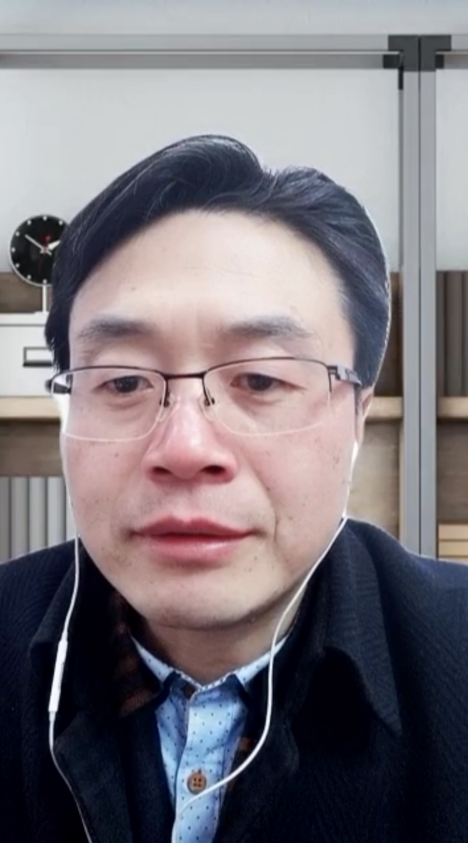
Professor Jia biao Xu
Professor Meng Ya Yang:
Practice plays a very important role in the training of talents in the all media era. The exploration of practical teaching in our school mainly focuses on the following three aspects: The first is to strengthen the construction of experimental platform and campus media, attach importance to laboratory construction, build a financial media center, 4K laboratory and virtual simulation laboratory, and fully open to students. Second, introduce and train teachers, and strive to introduce talents from the industry. Third, platform construction and project system training, and strive to build a platform for practical and scientific education.
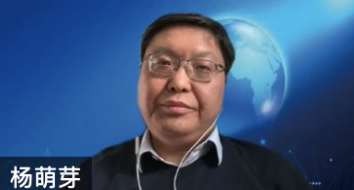
Professor Meng Ya Yang
Professor Shi ju Li:
In the reconstruction of curriculum system, we should vigorously develop and cultivate cross integration new curriculum, aiming at cultivating students' solid basic quality and practical ability. secondly, we should optimize the training process, Following the basic law of journalism and communication education and pay attention to practice. Thirdly, we should pay attention to personnel training. increasing the proportion of Ideological and political courses, innovating the training mode, and cultivating applied and compound talents.
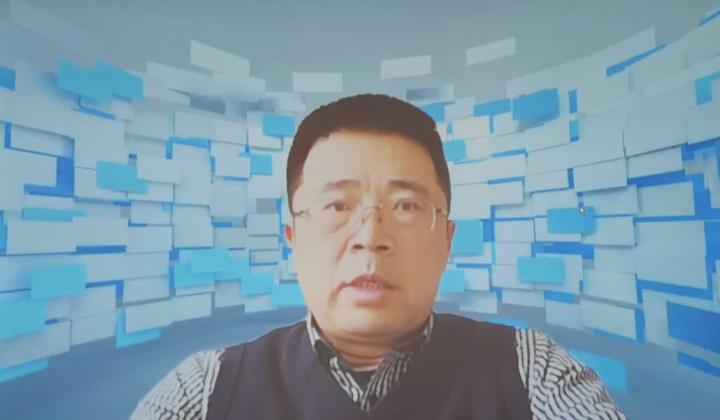
Professor Shi ju Li
Professor Sheng qing Liao:
the construction of news communication needs to strengthen social science thinking and training. From the perspective of news communication, sticking to integrity is to adhere to news communication research. One of the most important aspects is communication science. Especially in the context of big data, we need to apply scientific research methods to collect and analyze the information of social media, truly grasp the law of communication, and serve the strategic needs of the industry and the country.
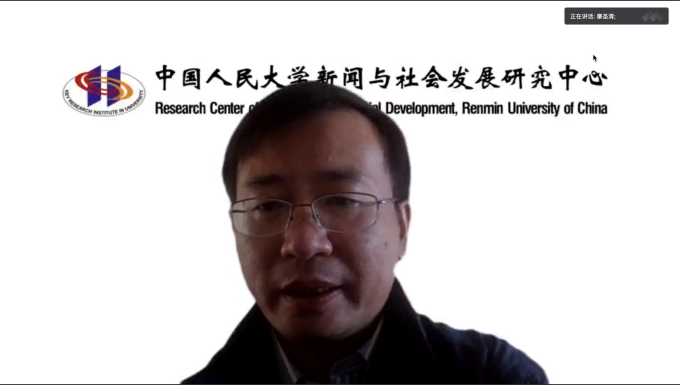
Professor Sheng Qing Liao
Professor Yun Zhang:
The future innovation of new liberal arts construction may focus on three points: Chinese discourse discipline system and value system; facing the international theory communication system; facing the actual logic of social needs.
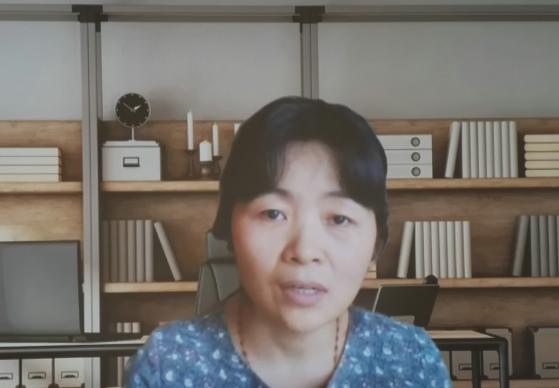
Professor Yun Zhang
Fourth Speech
The fourth speech was hosted by Professor Run ze Wang, School of Journalism, Renmin University of China. The speakers are: Professor Ya lin Qi, executive vice dean of School of Journalism and Communication, University of Chinese Academy of Social Sciences; Professor Hong Liu, executive vice dean of School of Journalism and Communication, Guangxi University; Professor Ge tu Tao, dean of School of Journalism and Communication, Inner Mongolia Normal University; Professor Li ping Zhang, vice dean of School of Literature and Journalism, Inner Mongolia University.
Professor Ya lin Qi:
In the construction process, crossover is necessary, which is exactly what we are now exploring. Firstly, the strategy of integration of teaching and science is carried out. Secondly, we should change the concept of education, and change teaching and research results into each other; Thirdly, We will continue to translate it into service achievements, serving national governance and society. Finally, in addition to top-level design and the integration of teaching and subjects, journalism and communication also has the integration of professional development, the creation of a new liberal arts and the construction of a cross-domain system.
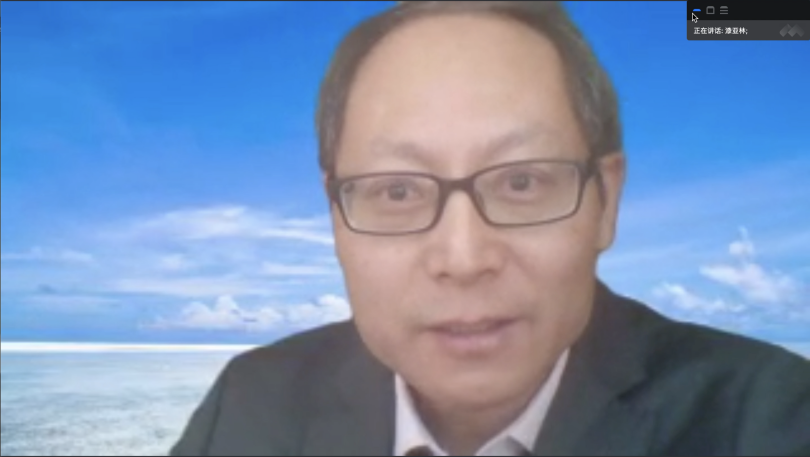
Professor Ya lin Qi
Professor Hong Liu:
What we have been insisting on is a Marxist open reading activity, which is mainly self-taught by students. The college buys books and designates books. Student should reads at least 8 books per semester for their credits. We believe that“upholding integrity” means that news facts cannot be distorted, and facts and viewpoints should be correct, and that they should conform to the Party's rules and regulations, discipline requirements and Marxist view of news.
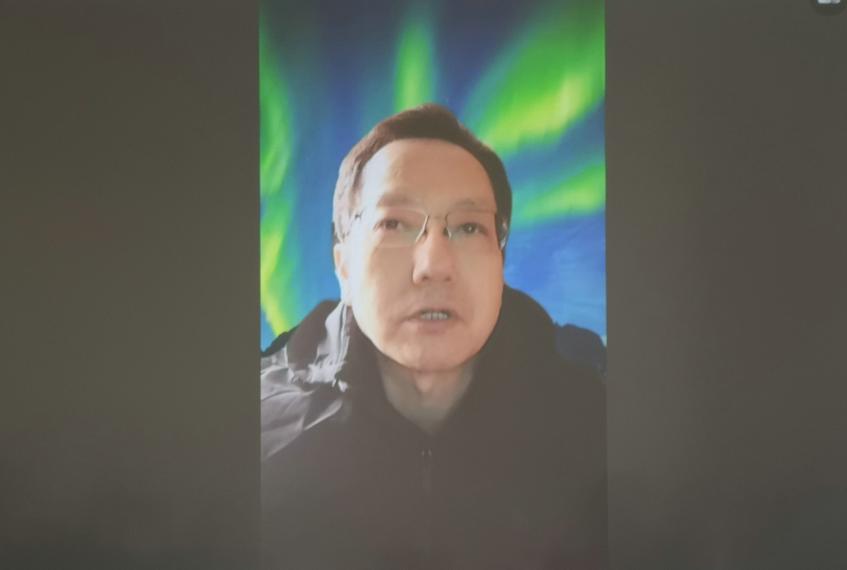
Professor Hong Liu
Professor Ge tu Tao:
Under the background of new liberal arts, the construction of journalism and communication education in ethnic minority areas, mainly revolves around one premise, two starting points and three paths. One premise represents the basic premise of always focusing on the cultivation of journalism talents to promote national unity. The two key points are the improvement of the compatibility of Arts and science and the comprehensive quality. Three ways: The first way is to pay attention to ideological and political education and strengthen patriotism with Marxist news view; The Second is to pay attention to undergraduate education and return to the mission of basic talent training; The Third is to focus on practice and improve the media and social service capacity.
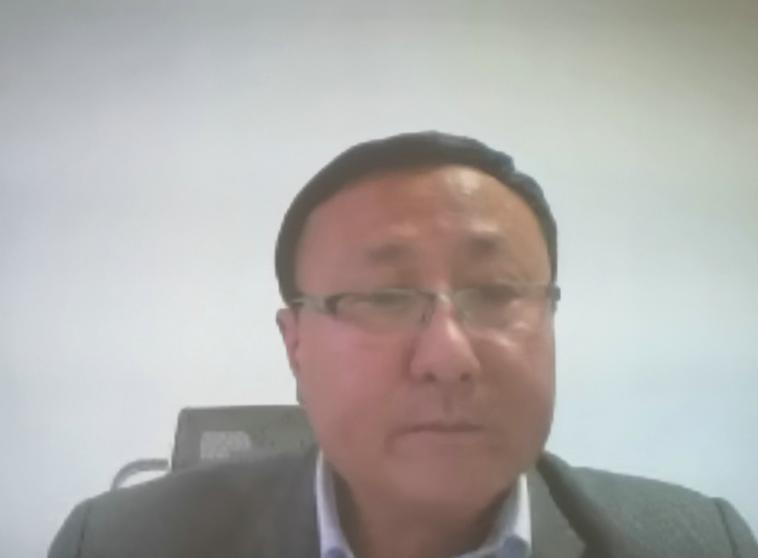
Professor Ge tu Tao
Professor Li ping Zhang:
The construction of new liberal arts emphasizes the integration of disciplines, breaking the barriers of disciplines, and the integration of Arts and Sciences.
At the same time, there are collaborative innovation a among academia industry, politics. What liberal arts should cultivate is content production with the characteristics of value leading, which is the role and contribution of liberal arts to society. In the era, we can shoulder the responsibility of this era. We should understand China's national conditions, have family feelings, and know where the foundation of Chinese traditional culture is.
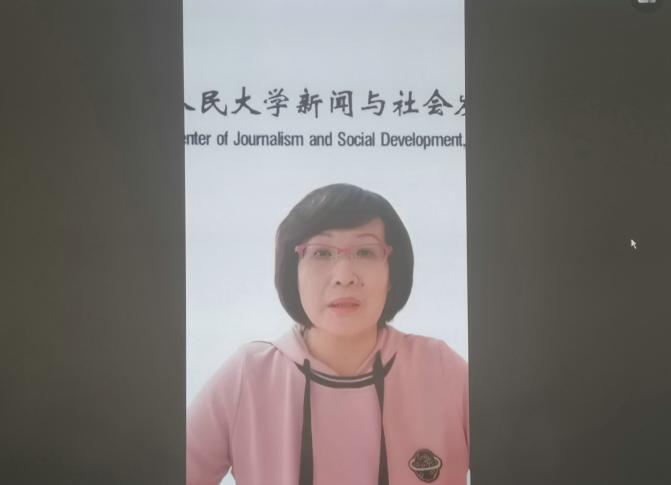
Professor Li ping Zhang
At the end of the forum, Professor Hui feng Zhang, Secretary of the Party committee of the school of journalism of Renmin University of China, once again expressed his gratitude and said that the new liberal arts is a core issue. In the special period, we hopes to work hand in hand with other brother universities, and play a good role in it.


